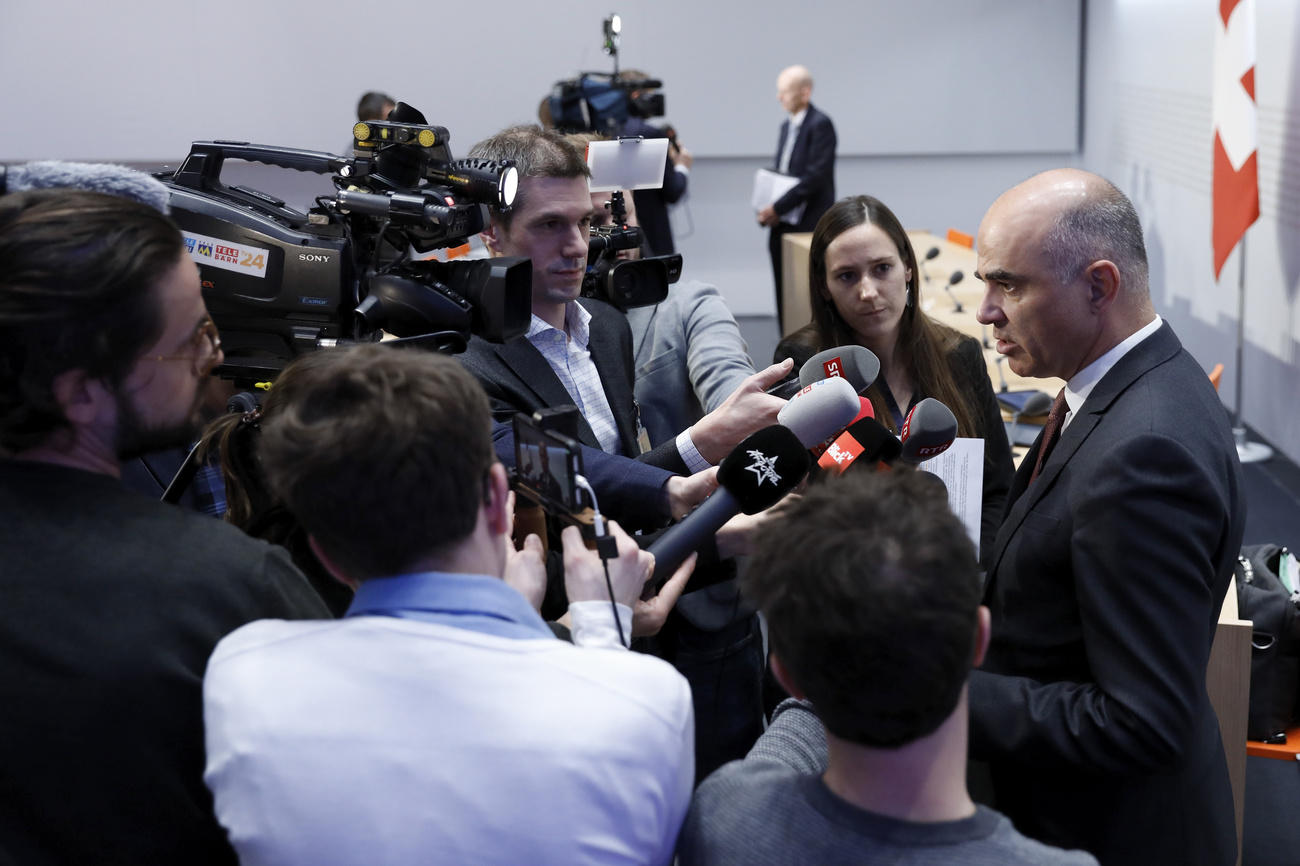
Coronavirus brings existential threat to Swiss press, despite more readers

The Swiss media has seen a spike in readership and audiences due to the coronavirus pandemic, but at the same time, revenues from advertisers have shrunk.
The drop in income has forced many private media companies to introduce short-time work for their staff, effectively lowering salaries by reducing working hours. This has led to newspapers cutting back on the number of sections produced – in some cases no longer publishing local news, while TV and radio stations are broadcasting limited programming.
In French-speaking Switzerland, the Fribourg daily La Liberté is now only publishing two sections, instead of the usual four, while some radio stations in the western Jura region have implemented a reduced programming schedule usually reserved for the slow summer months.
The Tamedia group, which owns numerous newspapers throughout the country, has also introduced short-time working. This measure is contested by journalists who feel that the conditions for short-time working are not being met since the workload has remained the same.
Publishers have also been under pressure from journalists and politicians who have called on them to offer coronavirus-related news to the entire population free of charge, arguing that this is a public health issue: in order to fight the pandemic effectively, every inhabitant should have access to reliable, independent and quality information.
Zurich-based Neue Zürcher ZeitungExternal link and Tages-AnzeigerExternal link (Tamedia group) have rejected this appeal, insisting that they must maintain their paywalls and subscription service at a time of drastically falling advertising revenues. But other newspapers, such as the German-language WOZExternal link, and Geneva daily Le TempsExternal link, as well as the French-language newspapers of the ESH GroupExternal link are offering unrestricted online access to their coronavirus-related articles.
Both unions and media owners have demanded financial support.

More
Coronavirus: the situation in Switzerland

In compliance with the JTI standards
More: SWI swissinfo.ch certified by the Journalism Trust Initiative



























You can find an overview of ongoing debates with our journalists here . Please join us!
If you want to start a conversation about a topic raised in this article or want to report factual errors, email us at english@swissinfo.ch.